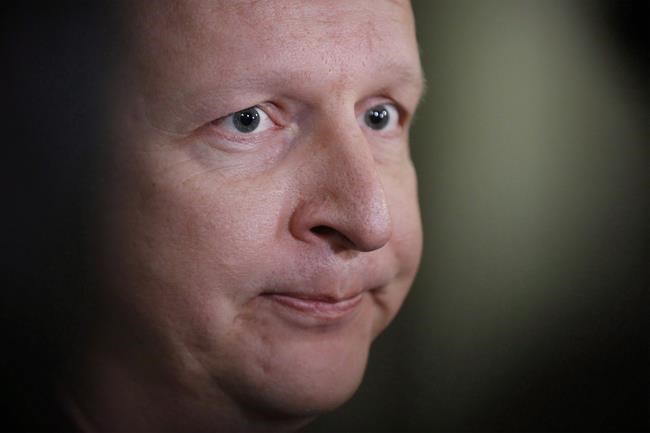Unions, businesses and lobby groups face new limits ahead of Manitoba election
Advertisement
Read this article for free:
or
Already have an account? Log in here »
To continue reading, please subscribe:
Monthly Digital Subscription
$0 for the first 4 weeks*
- Enjoy unlimited reading on winnipegfreepress.com
- Read the E-Edition, our digital replica newspaper
- Access News Break, our award-winning app
- Play interactive puzzles
*No charge for 4 weeks then price increases to the regular rate of $19.00 plus GST every four weeks. Offer available to new and qualified returning subscribers only. Cancel any time.
Monthly Digital Subscription
$4.75/week*
- Enjoy unlimited reading on winnipegfreepress.com
- Read the E-Edition, our digital replica newspaper
- Access News Break, our award-winning app
- Play interactive puzzles
*Billed as $19 plus GST every four weeks. Cancel any time.
To continue reading, please subscribe:
Add Free Press access to your Brandon Sun subscription for only an additional
$1 for the first 4 weeks*
*Your next subscription payment will increase by $1.00 and you will be charged $16.99 plus GST for four weeks. After four weeks, your payment will increase to $23.99 plus GST every four weeks.
Read unlimited articles for free today:
or
Already have an account? Log in here »
Hey there, time traveller!
This article was published 29/06/2019 (2362 days ago), so information in it may no longer be current.
WINNIPEG – Some Manitoba labour leaders say they are facing unfair advertising limits in the upcoming provincial election because the Progressive Conservative government has changed the rules.
Up until — and including — the 2016 election, third-party advertising was almost wide open. Unions, business groups and others were free to spend as much as they wanted to advertise their issues, as long as the ads didn’t mention a specific candidate or party. If they did, they were limited to $5,000 during the campaign period.
For the Sept. 10 election this year, under a law the Tories passed in 2017, the exemption has been tightened to cover any communication “that takes a position on an issue with which a registered party or candidate is associated.” The spending limit, however, has been raised to $25,000.

The Manitoba Nurses Union, which has been speaking out against health-care cuts, says the new law is too broad and could cover any issue on which one political party might have a similar view.
“Health care will be on the agenda of every major political party and a topic of discussion on doorsteps across the province,” union president Darlene Jackson said in a written statement.
“Certainly it’s the No. 1 concern of nurses, but we will be severely limited in terms of what we’re able to do during the election period.”
Kevin Rebeck, head of the Manitoba Federation of Labour, said the new law limits his group’s ability to campaign for a higher minimum wage.
“Because that’s an issue that parties might weigh in on, we aren’t allowed to raise that issue in a public forum through ads,” Rebeck said.
Premier Brian Pallister said most provinces have similar limits and Manitoba’s rules are fair. They only kick in once the election campaign officially begins, which under provincial law must be sometime between four and five weeks before election day.
“I think it’s pretty defensible, given the fact you want to have a balanced approach where honest information can be out there in the public view and people can make their decision on that basis without undue influence,” Pallister said.
Unions have been some of the biggest advertisers in recent election campaigns. Royce Koop, who teaches political studies at the University of Manitoba, has said unions are probably the most important third-party players in Manitoba politics.
In the 2007 and 2011 elections, the NDP ran ads accusing then-Tory leader Hugh McFadyen of having a secret plan to privatize Manitoba Hydro and other Crown corporations.
McFadyen denied the accusation. One union took out ads that did not mention McFadyen but warned against hydro privatization. That type of advertising was not subjected to third-party ad limits under the rules at the time.
Rebeck said the new law sends the wrong message about democratic engagement.
“Elections are the time to raise issues that matter to Manitobans and this new law really limits the ability to do that,” he said.


